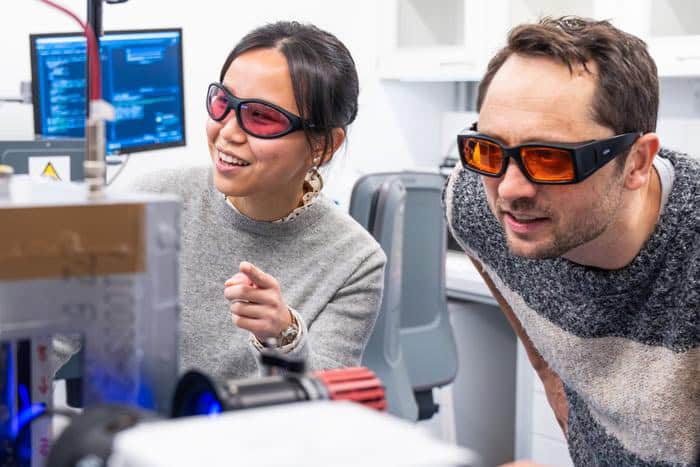British scientists have made a significant breakthrough in the quest to combat ageing by developing a drug that aims to block necrosis, a process of uncontrolled cell death linked to many age-related diseases. This innovative approach could revolutionise medical treatment by addressing the biological processes behind ageing rather than merely alleviating its symptoms. The company leading this effort, LinkGevity, is preparing to begin human trials for its experimental drug, marking a potential milestone in longevity research.
With the aim of preventing or delaying diseases commonly associated with ageing, such as heart failure, kidney disease, Parkinson’s disease, strokes, and dementia, the drug is designed to target the underlying mechanisms of necrosis. LinkGevity has patented its compound and completed initial laboratory work, now awaiting regulatory approval to proceed with human trials. These trials are expected to start in the UK, US, and Europe as early as March 2024.
LinkGevity is supported by reputable organisations, including Innovate UK, the UK government’s innovation agency, and Horizon Europe, the European Union’s funding programme for research and innovation. The company has also partnered with the Francis Crick Institute, a leading biomedical research centre in London, to further its research. The company’s work has generated interest from space agencies, including NASA and the European Space Agency, which are exploring how microgravity influences human biology.
The firm was founded by sisters Dr. Carina Kern, who serves as CEO, and Serena Kern-Libera, who is responsible for business strategy and partnerships. Both left established careers to delve into longevity science, with Dr. Kern previously working as a research fellow at University College London. Dr. Kern describes their approach as restorative medicine: “The body is an interconnected network. We’re not just targeting a symptom—we’re targeting the process that drives ageing itself.”
The research focuses on the calcium pathways that initiate necrosis. LinkGevity’s patented compound is intended to counteract the calcium overload that leads to cell membrane rupture. The upcoming human trials will concentrate on patients suffering from kidney disease, a condition particularly susceptible to necrosis and age-related decline. If successful, the company hopes to expand the drug’s application as a broader anti-ageing therapy.
Professor Justin Stebbing, a prominent cancer and cell death expert at Imperial College London and an advisor to LinkGevity, emphasised the significance of their research: “Necrosis sounds like a biology term, but what it really means is tissue rot. If you can prevent that, you don’t just look younger—your organs actually stay younger.”
Despite the exciting potential, developing a drug specifically targeting ageing presents unique challenges. Professor Stebbing noted that no regulator has yet approved a drug for ageing due to the complexities of defining endpoints for studies and measuring outcomes. “We’re using the kidney as a model, and we think we have a good chance of being the first anti-ageing drug approved because we understand the mechanism that we’re dealing with,” he stated.
LinkGevity’s research could also have implications for space travel. NASA has identified links between the effects of microgravity on astronauts and accelerated ageing processes. In space, astronauts experience loss of muscle mass, bone density, and calcium balance—changes that mimic aspects of ageing. Professor Damien Bailey, chair of the Life Science Working Group at the European Space Agency, remarked, “When astronauts return to Earth, they are treated much like patients. If a drug can make our cells more resilient, it could be transformative for both space travel and human health on Earth.”
The Cambridge-based start-up is part of a competitive global landscape aimed at developing therapies to slow ageing. In the United States, several well-funded ventures, including Altos Labs, Retro Biosciences, and Calico Life Sciences, are pursuing methods to rejuvenate human cells. British firms are also exploring cell-reprogramming technologies. In contrast, LinkGevity focuses on preventing the destructive cell death associated with organ decline, allowing the body’s natural functions to restore themselves.
Analysts estimate that the global longevity market could reach around £25 billion, highlighting the growing interest in anti-ageing research and therapies. As LinkGevity prepares for its human trials, many are watching closely to see if this pioneering approach will pave the way for significant advancements in longevity medicine.







